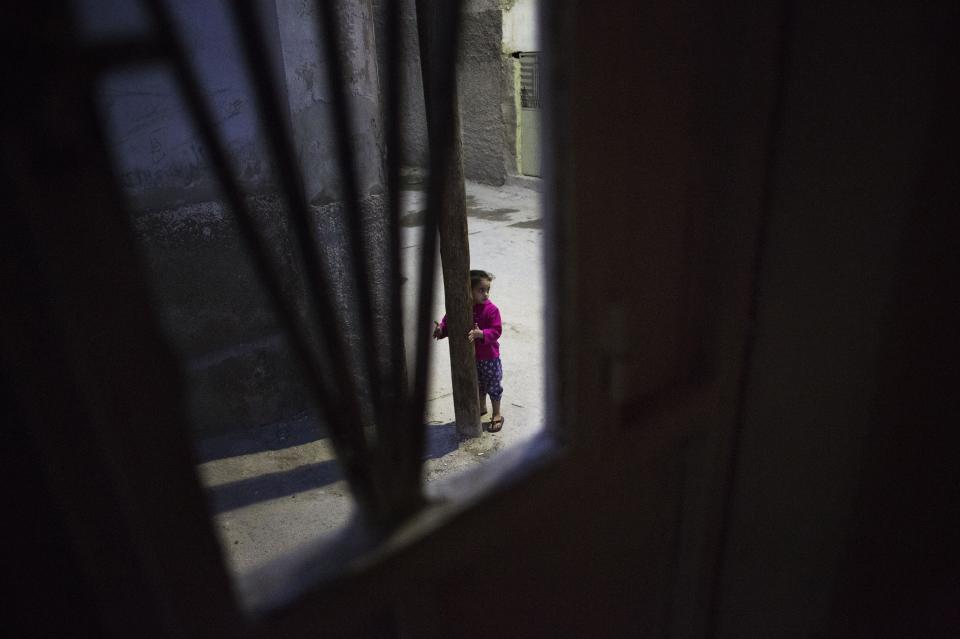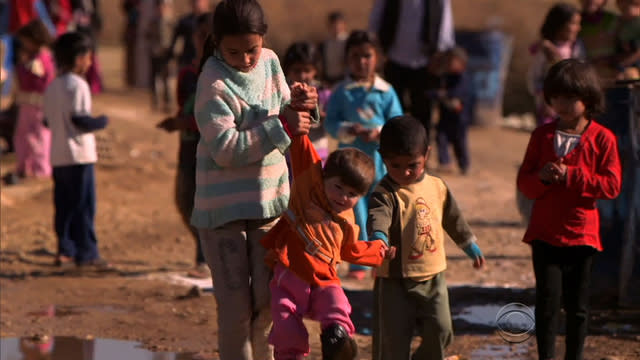The Desperation of Survival
"The Syrians we work with, they talk to us about their neighbours and they tell us how helpful and friendly they are. The attitude seems to be, 'What else can we do but be hospitable?' It's amazing, really."
East Amman, Jordan, Care International's Syria centre director Matt Sugrue
"The Jordanians have gone shoulder to shoulder with us in places like Afghanistan and Haiti, and our relationship contains all the bells and whistles that you wouldn't normally associate with such a small country."
Canadian Foreign Affairs official
"Our treatment here is already starting to be awful. It is because we are considered people who are taking away people's jobs, and taking away their needs. Rents are going up, and people blame us. People need work, and clothes, and they are getting into debt.
"There is a pain in our hearts. We were peacefully living. Now our country is being torn apart. And there is nothing we can do."
Jihad Saleh, Syrian English teacher, refugee in Jordan
The number of homeless refugees, both those remaining within Syrian borders, forced to leave their homes, their towns, their city suburbs as a result of deadly attacks threatening their lives, and with the pain of having lost relatives, continues to grow. Currently that number, according to the United Nations, is seven million traumatized Syrian civilians, desperate and torn with the reality of their desperate situation.
That number can be compared with the number of Palestinians who originally fled when Israel declared itself a State with the blessing of the United Nations in 1948, and was immediately attacked by a combined Arab army determined to dislodge them from the Middle East. While the United Nations has kept the original 700,000 Palestinian refugees and their generational descendants on permanent refugee status, in 'refugee camps' which are really cities with all the amenities of city living in a permanent welfare state, ten times that number have been made homeless by a government willing to slaughter its own.
In Jordan, Egypt, Turkey, Iraq and Lebanon, millions of Syrian men, women and children have fled their country of birth to take refuge from conflict and deprivation, oppression and menacing government attacks. Jordan, whose population already consists of Palestinians who had migrated there in 1948 and never left -- though Jordan's military fought a brutal war to dislodge the PLO -- has taken in an estimated million Syrian refugees and is doing its best to manage their needs.
With the help of the United Nations, and with the willing assistance of other countries with which Jordan has agreements, Jordan is managing its burden. Canada is one of those countries, having signed a Canada-Jordan Foreign Investment Promotion and Protection Agreement, a free-trade agreement and a Canada-Jordan Nuclear Cooperation Agreement. Direct support to Jordan for assistance with budget relief and refugee care has come from Canada in the sum of $130-million.
 |
| AP Photo, Manu Brabo |
Along with the Palestinians, the Hashemite Kingdom ruled by King Abdullah II, has also given refuge to Iraqis who fled their country after the U.S.-allied invasion to remove Saddam Hussein. Its ancient heritage included the capital Amman having been conquered by biblical King David before it was ruled by the Greek Ptolemies, then Rome, and its emergence as a Byzantine Christian city. The eighth Century saw it invaded by Islam, and that is its status to the present day, with Jordan being one of only two Islamic countries in the Middle East sharing a peace treaty with Israel.
Jihad Saleh, the refugee from Syria living in Amman, was once a man of modest substance in his home country. "Of course, we are beggars now. I brought my wife and five children here from Damascus because I had to, for their safety. Now, all our savings are gone, and I do not know what we are going to do." Unlike the Syrians living in tented refugee camps with basic amenities, Mr. Saleh is among those Syrian refugees who were able to pay for rent, for food and other necessities.
 |
| AP Photo - Manu Brabo |
Now, however, his family's savings have been depleted, and he is concerned about how they will manage to survive. Because of the huge influx of refugees, an influx that continues, the small country of Jordan is hard put to accommodate them all. It is not a wealthy country, and depends on the goodwill and understanding of the international community to aid it in meeting expenses relating to the refugees' needs. When goods and services are in high demand difficult to meet, stress occurs as prices rise and scarcity looms.
And while Jordanians have been helpful and accommodating, sympathetic to the plight of the refugees, they too are under everyday living pressures of providing for their own families. It is inevitable, always has been and always will be, that when a country is overrun with an overabundance of refugees fleeing war in nearby countries the first reaction is to help, before resentment at rising prices and employment challenges kick in.
Labels: Conflict, Human Relations, Jordan, Refugees, Syria

0 Comments:
Post a Comment
<< Home